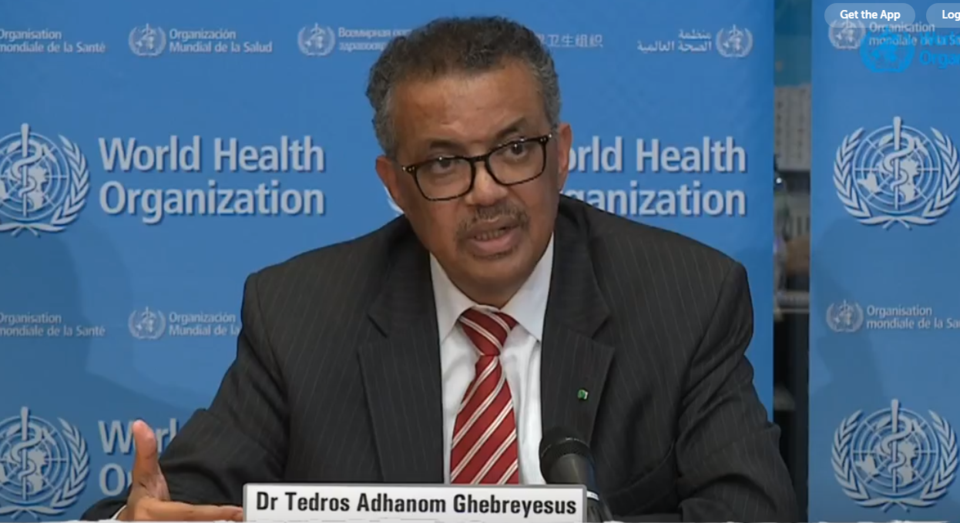The World Health Organization has declared the coronavirus — which has infected more than 122,000 people across 114 countries — a pandemic.
“Pandemic is not a word to use lightly or carelessly,” said Tedros Adhanom Ghebreyesys, director-general of WHO on Wednesday.
“It is a word that, if misused, can cause unreasonable fear, or unjustified acceptance that the fight is over, leading to unnecessary suffering and death.”
This is the first pandemic caused by a coronavirus, he said.
The organization has been monitoring and assessing the outbreak “around the clock,” said Tedros, and is “deeply concerned” by its “alarming levels of spread and severity, and by the alarming levels of inaction.”
Despite declaring the outbreak a pandemic, the focus should still remain on detecting, testing, treating and isolating the coronavirus, said Tedros, in order to prevent cases from becoming “clusters” and community transmission.
“We cannot say this loudly enough, or clearly enough, or often enough: all countries can still change the course of this pandemic,” Tedros said.
Calling the outbreak a pandemic should trigger countries to take more aggressive action, added Dr. Mike Ryan, director of WHO’s emergency program.
“This is a characterization or a description of a situation…It is not a change in what we do. It is not a trigger for anything other than more aggressive, more intensive action.”
“Even those countries with community transmission or large clusters can turn the tide on this .
— World Health Organization (WHO) (@WHO)
Several countries have demonstrated that this virus can be suppressed and controlled.”-
Several countries, said Tedros, have demonstrated the spread of the virus can be "suppressed and controlled."
China imposed sweeping quarantines in January — which remain in place — in its effort to contain the coronavirus, locking down nearly 60 million people in the country's central Hubei province.
Late Monday, the Italian government announced all of Italy — with a population of around 60 million — would be under lockdown until at least April 3.
The coronavirus originated in Wuhan, the capital of Hubei province, China, late last year. In January, the WHO declared the outbreak a global emergency.
Countries should review their response to the outbreak, said Ryan.
“There have to be very strong efforts made to suppress infection, to push the infection back,” he said, to at least help slow the spread and allow health systems to remain in control. Â
Globally, as of Wednesday at 10 a.m., the virus has infected 122,289 people, killing 4,389. Most cases are in China, where the disease originated, but it has since spread rapidly to countries across the world.
Italy, Iran and South Korea are now the countries most concerning the WHO, however, the number of cases reported in South Korea — as well as China — is declining, according to the organization.
Of the reported cases, 67,009 have fully recovered.
B.C. has 39 reported cases of the virus, one of whom, an elderly man in a North Â鶹´«Ă˝Ół»care home, has died.
In 2009, the WHO declared the H1N1 outbreak a pandemic.



